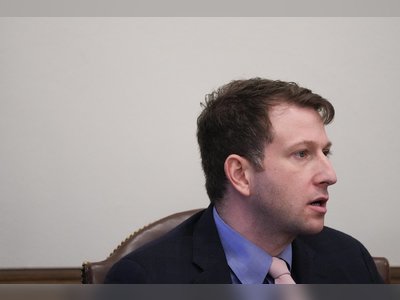Netflix's Big Bet on AI: $900,000 Job Role Amid Ongoing Hollywood Strikes
Netflix’s pursuit of artificial intelligence specialists stirs controversy as actors and writers persist in their industrial action over pay disparities.
As the Hollywood strikes persist, it seems large corporations, such as Netflix, are preparing for a protracted standoff.
A case in point is Netflix’s recent advertisement for a high-paying role - a machine learning platform product manager with an annual salary ranging from $300,000 to $900,000.
This starkly contrasts with the daily wage of approximately $200 that many actors earn, according to SAG-AFTRA contracts. The place of artificial intelligence in shaping the future of entertainment is one of the key sticking points in the ongoing disputes.
Netflix's job posting implies the role's focus will be on using artificial intelligence to "produce exceptional content", not just refining recommendation algorithms for shows and movies.
The listing suggests a broader initiative by the streaming titan to incorporate AI throughout its business operations.
Furthermore, a segment on the company’s website reveals that Netflix leverages AI to enhance the production process for its original TV shows and movies.
This is not Netflix's sole high-paying job offer with a significant emphasis on AI.
The company is also seeking a technical director for generative AI at its burgeoning gaming studio, a role that could command a yearly salary of up to $650,000, as The Intercept reports.
Netflix’s AI endeavors have already borne fruit; the company currently streams a Spanish reality dating show, Deep Fake Love, which employs AI to create "deepfakes" of contestants' faces. Additionally, its gaming studio uses generative AI to develop storylines and dialogues.
The latest developments follow the rejection of a proposal from the Alliance of Motion Picture and Television Producers (AMPTP) by striking actors.
The AMPTP had proposed a one-time fee of $200 for actors to have their faces scanned for future use in AI-enhanced CGI replicas, a move that has drawn criticism from the Screen Actors Guild - American Federation of Television and Radio Artists (SAG-AFTRA).
The guild has expressed concerns that the company would own the actors' scans, images, and likenesses, and be able to use them indefinitely in any project without further consent or compensation.
A case in point is Netflix’s recent advertisement for a high-paying role - a machine learning platform product manager with an annual salary ranging from $300,000 to $900,000.
This starkly contrasts with the daily wage of approximately $200 that many actors earn, according to SAG-AFTRA contracts. The place of artificial intelligence in shaping the future of entertainment is one of the key sticking points in the ongoing disputes.
Netflix's job posting implies the role's focus will be on using artificial intelligence to "produce exceptional content", not just refining recommendation algorithms for shows and movies.
The listing suggests a broader initiative by the streaming titan to incorporate AI throughout its business operations.
Furthermore, a segment on the company’s website reveals that Netflix leverages AI to enhance the production process for its original TV shows and movies.
This is not Netflix's sole high-paying job offer with a significant emphasis on AI.
The company is also seeking a technical director for generative AI at its burgeoning gaming studio, a role that could command a yearly salary of up to $650,000, as The Intercept reports.
Netflix’s AI endeavors have already borne fruit; the company currently streams a Spanish reality dating show, Deep Fake Love, which employs AI to create "deepfakes" of contestants' faces. Additionally, its gaming studio uses generative AI to develop storylines and dialogues.
The latest developments follow the rejection of a proposal from the Alliance of Motion Picture and Television Producers (AMPTP) by striking actors.
The AMPTP had proposed a one-time fee of $200 for actors to have their faces scanned for future use in AI-enhanced CGI replicas, a move that has drawn criticism from the Screen Actors Guild - American Federation of Television and Radio Artists (SAG-AFTRA).
The guild has expressed concerns that the company would own the actors' scans, images, and likenesses, and be able to use them indefinitely in any project without further consent or compensation.












